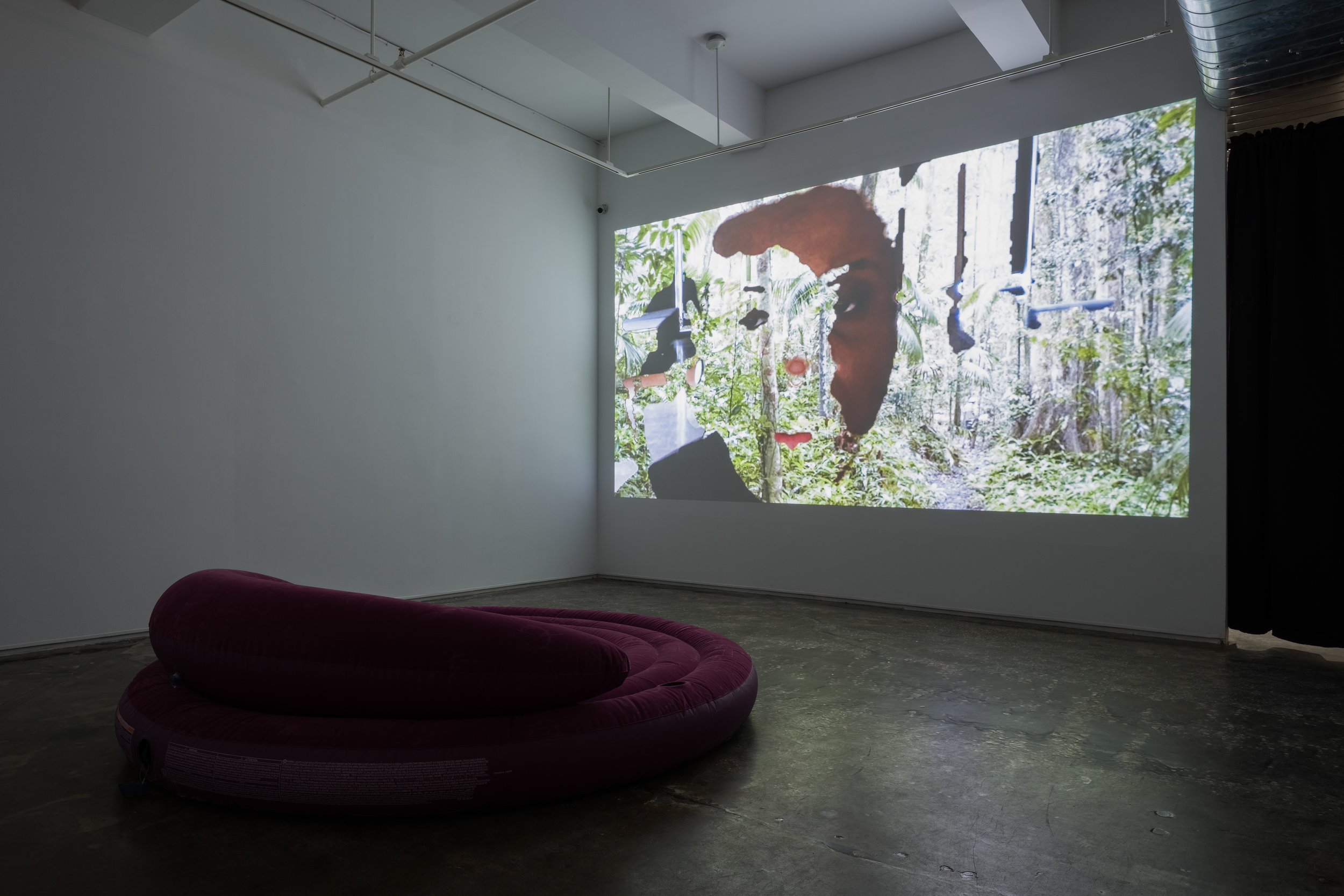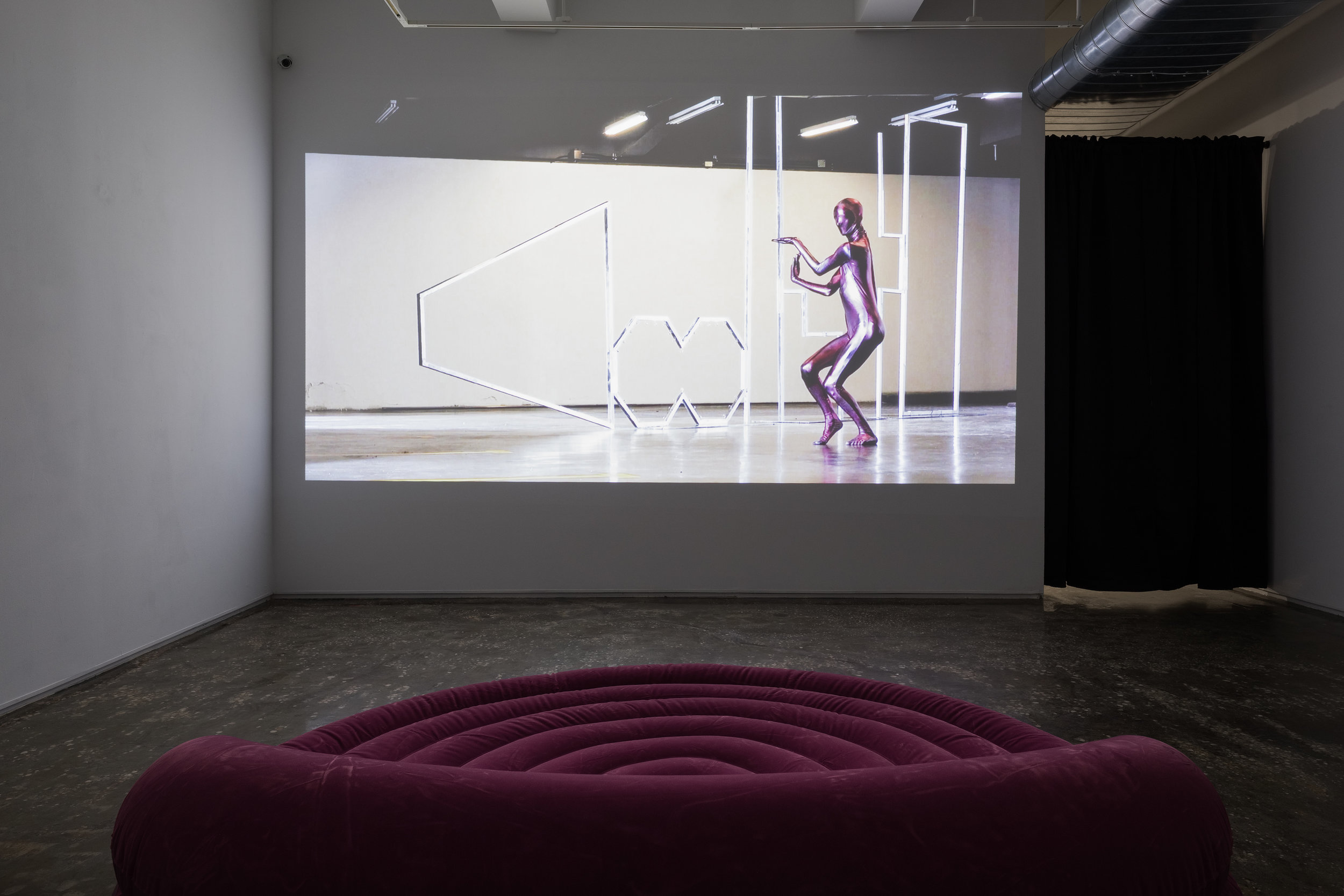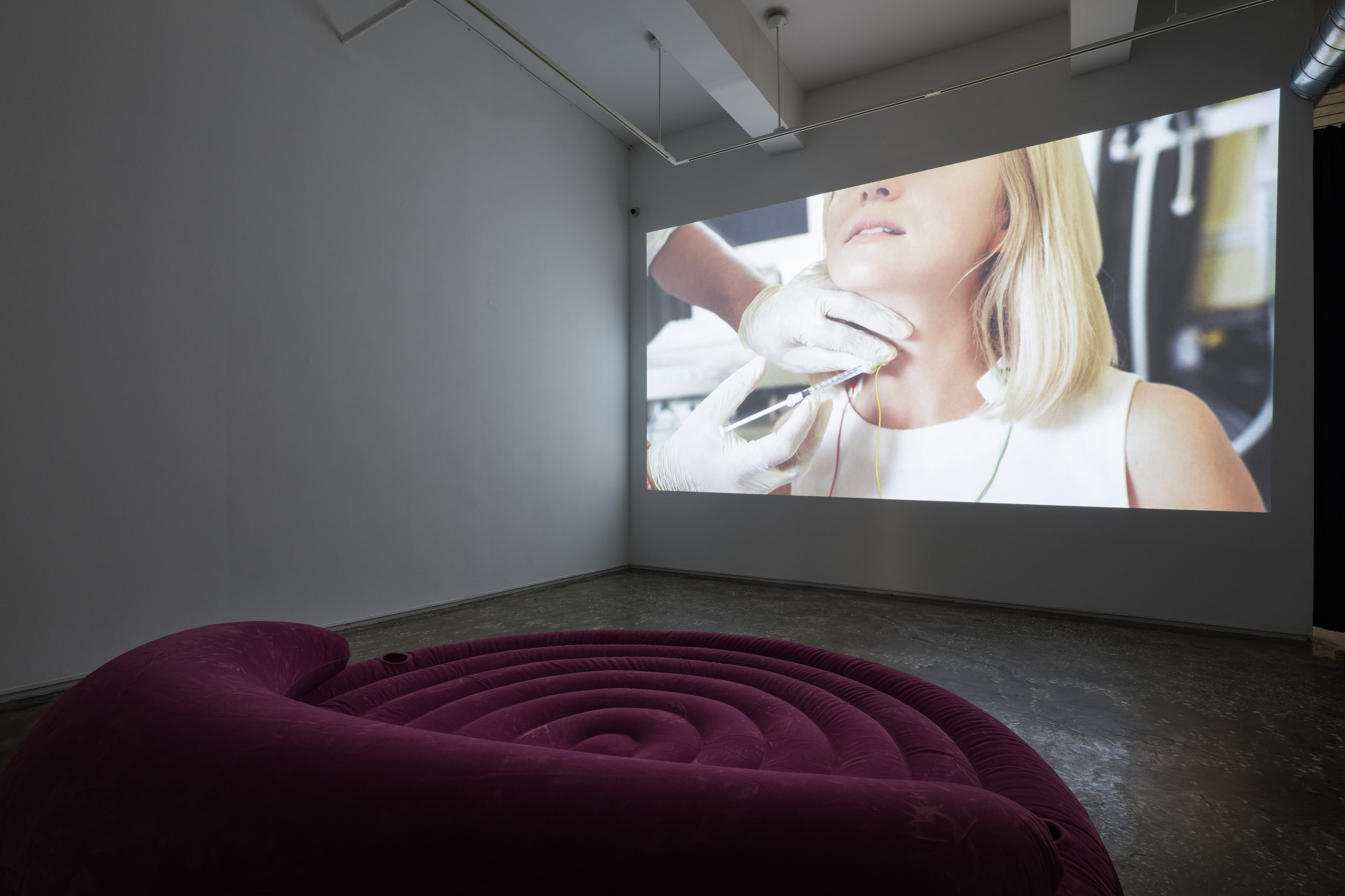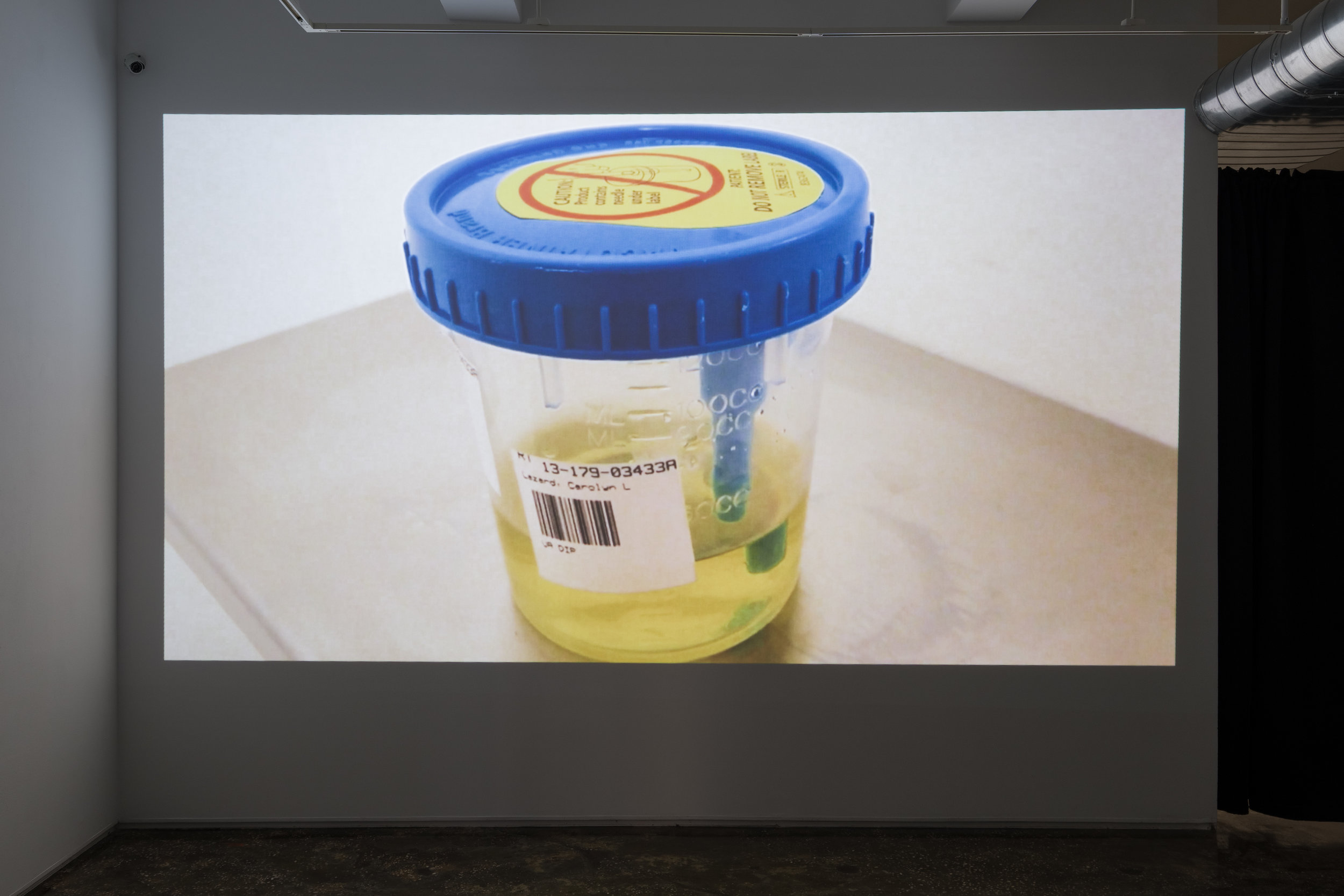Health Show II
Organized by A.I.R. Gallery, SOHO20 and Triangle Arts Association in Collaboration with Curator and Writer Rachael Rakes
Participants: Black Youth Project 100, Kerry Downey and Douglas Paulson, Evan Ifekoya, Carolyn Lazard, Luis Mejico, National Women's Liberation, Marianna Simnett, Caroline Sinders, and Osías Yanov
Gallery II
Osias Yanov, VI SESIÓN EN EL PARLAMENTO, 2015, video still from performance
March 16 - April 15, 2018
Opening Reception: Friday, March 16th, 6 - 8PM
DUMBO’s First Thursday Art Walk: April 5, 6 - 8PM
Coinciding with Women’s History Month, the Health Show II will take place in three different Brooklyn locations in March 2018. This initiative is dedicated to a series of shows that took place in Lower Manhattan in February 1994, called The Women’s Health Show. Launched in collaboration with the Women’s Caucus for Art, The Women’s Health Show explored the American medical system, and questioned, “how women are perceived within it.” The original project included panels developed with community and arts organizations such as A.I.R., and SOHO20, which explored race and racism in healthcare, and medical research deficiencies for diseases affecting women and people of color. These concerns and the systemic imbalances they stem from, remain urgent problems today. The illnesses that primarily affect female and feminized bodies continue to receive proportionally less medical research, and women frequently face inadequate care due to entrenched sexism on the part of doctors. This contemporary iteration of the Health Show will focus on new projects that address health and care both in the medical industry and our day to day lives.
From March 15 through April 16, A.I.R. Gallery will present a video program exhibition titled Skin.Cells that explores health and care through the concepts of permeation and membrane. Examining epidermal boundaries in an ecology of collapse, these works imagine the infrastructure of the body within the infrastructure of organized care. Carolyn Lazard’s Improved Techniques foregrounds the bleak corners and grim views of the spaces where the sick are sent to get treated, the eerie shots dropping question after question as to how these particular elements came to situate themselves together in a foreboding, sterile environment. In Kerry Downey and Douglas Paulson’s Our Bodies Without Organs Ourselves medical moleskin and canvas are visually grafted on flesh, and over images of tenderness and naked intimacy. In color and tone, the work blends the modes of ailing and sex, and redefines boundaries of interior and exterior. Osías Yanov’s VI Sesión en el Parlamento documents an elegantly choreographed performance in which iridescent bodies are affected and afflicted by a series of structures built to pierce them but which they work around to avoid. In Marianna Simnett’s The Needle and the Larynx the artist exposes herself to the effects of botox injections into her body that transform her voice. The work comments on the technological possibilities within the body. Evan Ifekoya's Ebi Flo (we are family) uses digital glitching and layered sounds to collapse space between the body, dreams, and the natural world. The works in this screening transfer in the words of Elizabeth Povinelli, from “sharp epidermal boundaries to fuzzy and open borders,” unveiling our contemporary condition of co-contamination and but also interdependence.
March 17, 1-5 PM: a workshop on Trans Health will be organized at A.I.R. in collaboration with artist and curator Luis Mejico. From 1-2:30 Callen-Lorde Community Health Center will discuss foundational healthcare tools as well as advice on self-care. Then from 3:30-5, Empty Cup Karate will go over self-defense technics.
March 21, 7-9 PM: SOHO20 will present an event and panel as part of artist Caroline Sinders’ project Feminist Data Set. Sinders will explore the ramifications of biased and un-feminist data, particularly as it pertains to women's health.
April 7, 3-5 PM: Triangle Arts Association collaborates with the Black Youth Project 100 ( byp100.org ) to host The Unjust Outcomes: Reproductive Violence on Black Bodies 1800 to Present which will bring together social activists from the Black Youth Project’s NYC chapter to increase knowledge about improving reproductive health outcomes for black families. We will explore how past and current socio-political climates impact the health of Black people. The panelists will analyze the unjust health disparities afflicting Black communities ranging from maternal death, to failure to thrive, to deficits in later life as seen through a reproductive justice lens. Our aim is to engage members of the community and gatekeepers of health information from different backgrounds to discuss collaborative methods of approaching these issues. The Unjust Outcomes: Reproductive Violence on Black Bodies 1800 to Present will be a platform for communities to engage in Black health throughout 2018 and beyond.
April 13, 6-8PM: A.I.R. will host National Women’s Liberation to organize an event focused on universal health care as a feminist demand, asking: “How would your life be different if you had free and guaranteed health care?” http://www.womensliberation.org/




Photography by Sebastian Bach
